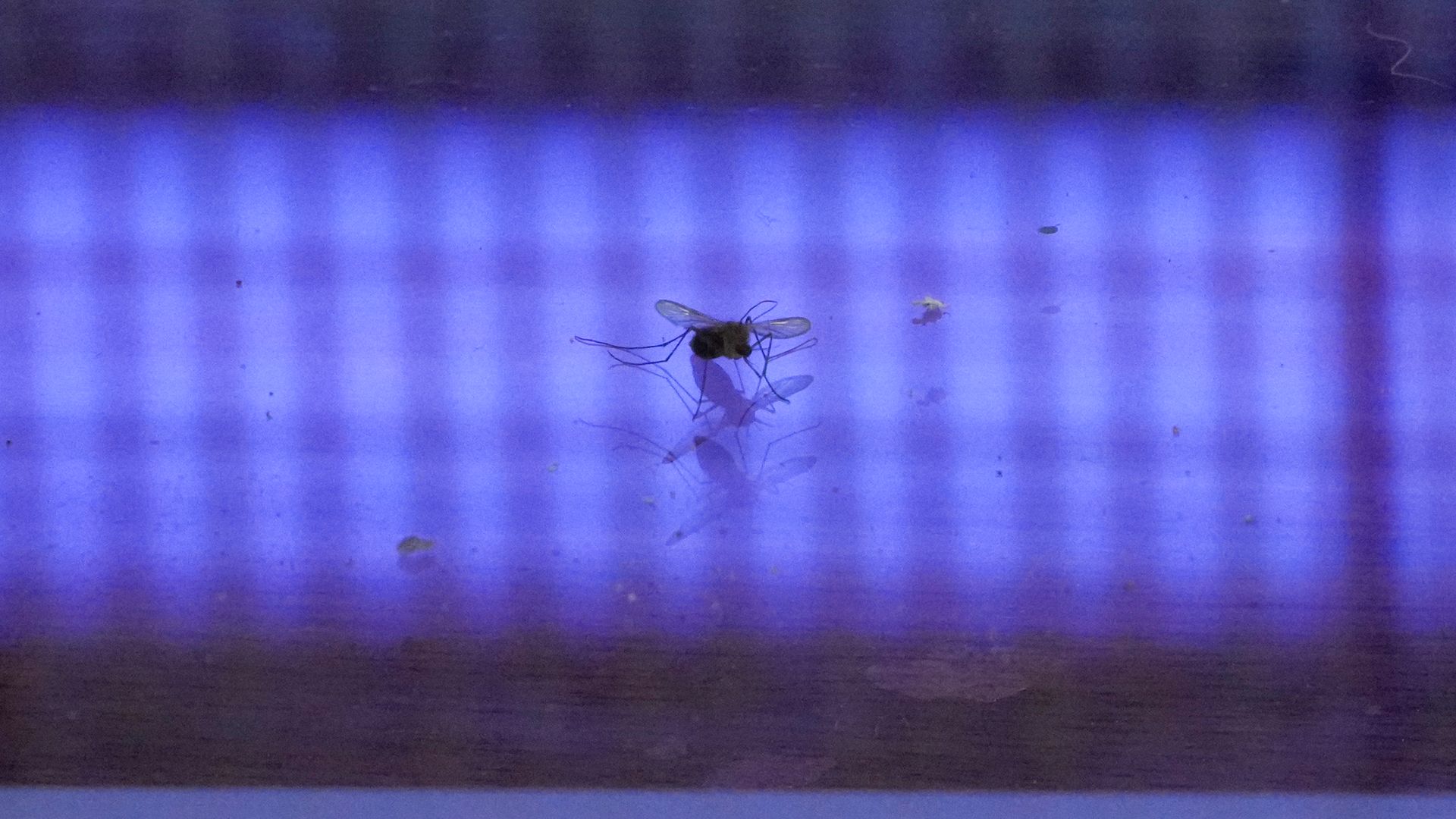A village in the Philippines is offering bounties for captured mosquitoes – dead or alive – amid a surge in dengue fever cases.
Residents in Addition Hills in Mandaluyong City will receive one Philippine peso – just over 1p – for every five mosquitoes or mosquito larvae they turn in, village chief Carlito Cernal said.
At least 28,234 dengue cases had been recorded in the Philippines this year up to 1 February, a 40% increase compared with the same period last year, according to health department statistics.
The unusual strategy in the densely populated Addition Hills comes after an outbreak in a nearby city that has resulted in 10 deaths, with another eight areas reporting a surge in cases of the viral infection.
Addition Hills is an urban village of more than 100,000 residents living in crowded neighbourhoods and residential condominium towers.
It has carried out clean-ups, canal de-clogging and a hygiene campaign to combat dengue, but after two students died, the campaign against mosquitoes intensified.
Critics warned the strategy could backfire if desperate people start breeding mosquitoes for the reward, but Mr Cernal said that is unlikely because the campaign will be stopped as soon as the surge in cases eases.
Miguel Labag, a 64-year-old scavenger, handed a jug with 45 dark mosquito larvae squirming in some water and received a reward of nine pesos (12p).
“This is a big help,” he said, smiling. “I can buy coffee.”
It is not the only unusual tactic being considered to fight the disease. Officials in another village in Quezon City are considering releasing swarms of frogs to eat mosquitoes.
Be the first to get Breaking News
Install the Sky News app for free
Read more on Sky News:
Trump blames Ukraine for war against Russia
Inflation hits 10-month high
Vatican update on Pope’s health
Dengue is a mosquito-borne viral infection found in tropical countries worldwide. It can cause joint pain, nausea, vomiting and rashes, and in severe cases can cause breathing problems, haemorrhaging and organ failure.
While there is no specific treatment for the illness, medical treatment to maintain a person’s fluid levels is critical.
Follow our channel and never miss an update
Dengue cases have surged unexpectedly ahead of the rainy season, which starts in June, most likely because of intermittent downpours that have left stagnant pools of water where dengue-causing mosquitoes can breed, health undersecretary Alberto Domingo said.
He added that climate change is likely to be contributing to off-season downpours.





